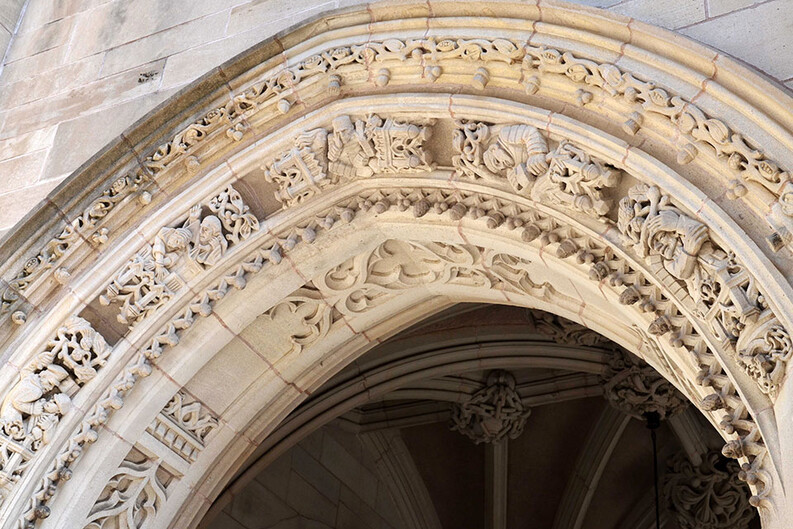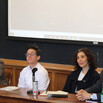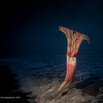Professor Schultz Begins Next Chapter in Project to Preserve Stories of Civil Rights Trailblazers

The Living Civil Rights Law Project, an ongoing project led by Ford Foundation Professor of Law and Social Sciences Vicki Schultz and involving Yale students, examines the work of lawyers in the U.S. Department of Justice Civil Rights Division, Employment Litigation Section (ELS) in the formative era from 1965 to 1980 — and analyzes what that work might have to say for current and future civil rights law.
The project includes an innovative course, first offered last year and continuing this spring, in which students meet and conduct oral history interviews of these pioneering civil rights lawyers on film. The course is open to Yale Law School students and to graduate students and upper-level Yale College students with relevant backgrounds, with permission of the instructor.
With exclusive authority to prosecute cases involving a pattern or practice of workplace discrimination under Title VII of the Civil Rights Act, ELS lawyers worked tirelessly to dismantle deep-seated patterns of segregation and inequality in the American workforce, taking on structural discrimination in industries like steel, construction, trucking, and public utilities and later in police and fire departments and other city and state governments around the country. Lawyers built the law from the ground up, creating novel legal concepts like disparate impact, pattern or practice, and affirmative action to breathe life into Title VII.
The project weaves together the legal, political, and organizational history to show how a small, but dedicated group of lawyers can change America.
“The line attorneys of the Civil Rights Division are unsung heroes of American history, as well as some of the finest lawyers in the history of the DOJ,” said Isaiah Ogren ’24, who took the course in 2022. “Preserving their stories while learning how they helped guide the development of American law through innovation in legal argument and strategic advocacy in advancing new doctrinal concepts was a great pleasure.”
When the course began, Yale Law School students conducted 16 professionally filmed oral histories with ELS lawyers after researching their most significant cases. Each student was paired with a former ELS lawyer based on their background and interests. Through these interviews, students interacted directly with the lawyers, learning about structural Title VII litigation, the history of the Civil Rights Division, the workings and culture of the renowned Employment Litigation Section, the development of civil rights law, and the far-reaching implications of ELS cases for contemporary civil rights law.
“The LCRL course is a unique opportunity to engage meaningfully with the work of the Employment Litigation Section and to interact with remarkably influential and inspiring lawyers, who have contributed so much to modern civil rights,” said Scotty Courvoisier ’23, another student from last year’s course. “As someone who aspires to work in this field, I was honored to take this course and learn from their examples. The relationships I developed during my time in the class will continue well into my professional career."
Schultz said she aspires to capture the extraordinary history of the ELS, and in doing so to inspire a new generation of law students to learn what far-reaching change can be accomplished by a small group of lawyers with a shared vision.
Students can use the extraordinary body of law created by early ELS lawyers to think deeply about how to address modern discrimination problems, asking, for example, “how the concept of a pattern or practice of discrimination ELS developed can be adapted to address the discrimination issues faced most frequently by LGBTQ+ folks today.”
Schultz said she also wants to create an intergenerational community of people committed to civil rights work.
“Inherent in the format of the course is the intergenerational transfer of knowledge and dreams, both ways, between veteran civil rights lawyers and Yale students. I’m thrilled that many of the students came to view their assigned lawyers as mentors or friends. I look forward to fostering those connections next semester,” Schultz said.
Carl Lasker ’24 took the course as IL last year and said the experience inspired his current projects investigating employment discrimination in large organizations.
“Taking Living Civil Rights Law in my 1L spring semester helped shape my trajectory in law school,” Lasker said. “I was directly inspired by my experience interviewing one of the first title VII lawyers at the Department of Justice’s Civil Rights Division. Professor Schultz is very generous with her time, and I am grateful for the amount of one-on-one attention she provided.”
This term’s course will build on the work Schultz and her students began last year. Students will have the opportunity to engage with a new group of groundbreaking lawyers. The course will focus less on the seminal private sector litigation and more on the pathbreaking public sector cases brought by the ELS in the 1970s, achieving racial diversity in policing, and gender diversity in firefighting, for example. This time, students will also have a chance to meet and interview people who were discriminated against and who benefitted from the efforts of ELS lawyers.
The course will receive substantial assistance from a documentary filmmaker Fellow, Taylor Nagel. She will provide logistical and creative support throughout the term.
“The rich history of the Employment Litigation Section deserves preservation,” Nagel said. “I’m thrilled to be working with Professor Schultz as she continues this important project.”
Nagel will explore crafting the stories that emerge from the project into a documentary film.
The project will also benefit from the work of a new law Fellow, Jacob Chabot, who will assist students with legal research. The project will hire production assistants to help Taylor and the cinematographers with logistics on film sites. The addition of Nagel and Chabot will allow Schultz more time to work with students one on one.
Students will have an opportunity to disseminate their work and ideas through creative storytelling as well as written papers and online publication. The multimedia approach of the seminar encourages students to share their work and aims to satisfy another of Schultz’s overarching goals for the project — building a community of people committed to advancing equal rights at the Law School and beyond.
Schultz was awarded an Oscar M. Ruebhausen grant to do this work. The Ruebhausen Fund supports Yale Law School students and faculty projects and seeks to further innovative responses to changing societal needs.


